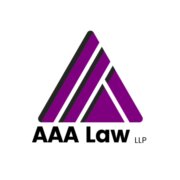Best Speeding & Traffic Ticket Lawyers in Canada
Share your needs with us, get contacted by law firms.
Free. Takes 2 min.
Or refine your search by selecting a city:
List of the best lawyers in Canada
About Speeding & Traffic Ticket Law in Canada
Speeding and traffic ticket laws in Canada vary by province and territory, reflecting the country's diverse legal landscape. Generally, these laws regulate driving speeds, road usage, and vehicular conduct to ensure public safety. Authorities, such as traffic police or automated systems, issue tickets for violations, which may result in fines, demerit points, or other penalties. It is crucial for drivers to know local regulations and understand the implications of traffic violations, as repeated offenses can lead to more severe consequences.
Why You May Need a Lawyer
Legal assistance in the realm of speeding and traffic tickets can be vital for a variety of reasons. Drivers may need a lawyer if they believe a ticket was issued in error, or if they want to contest the severity of the penalties. Additionally, those facing multiple offenses or significant penalties, like license suspension, may benefit from professional legal representation. A lawyer can provide advice on possible defenses and represent drivers in court, potentially reducing fines or demerit points.
Local Laws Overview
The fundamental structure of traffic laws is consistent across Canada but details can differ significantly. Speed limits are typically set by local municipalities and vary depending on the type of road and surrounding environment. Common legal elements concerning traffic tickets include the issuance of demerit points, which accumulate on a driver’s record and can affect insurance rates or lead to license suspensions if thresholds are crossed. Additionally, provinces enforce laws regarding impaired and distracted driving, both of which carry severe penalties.
Frequently Asked Questions
What happens if I receive a speeding ticket in Canada?
Receiving a speeding ticket generally results in a fine and demerit points added to your driver's license. These penalties can vary by province and the severity of the speeding.
Can I contest a speeding ticket?
Yes, you can contest a speeding ticket by taking your case to traffic court. It may be beneficial to have a lawyer to help you navigate the court process and present a defense.
What are demerit points, and how do they affect my license?
Demerit points are added to your driving record for traffic violations. Accumulating too many points can lead to higher insurance premiums, a suspended license, or other penalties.
How can I find out how many demerit points I have?
Contact your province's motor vehicle department, such as the Ministry of Transportation in Ontario, to check your demerit point balance.
What is the process for paying a traffic ticket?
Traffic tickets can be paid online, by mail, or in person at designated offices, depending on your province. Instructions are usually provided on the ticket itself.
Do traffic tickets from other provinces affect my driving record?
Most provinces share information about traffic violations, so tickets received in another province can affect your record and insurance rates.
What are the potential defenses to a speeding ticket?
Potential defenses might include errors in radar readings, justification for emergency speeding, or incorrect ticket details. Legal advice can clarify these defenses.
How does a traffic ticket affect my car insurance?
Traffic tickets can lead to higher insurance premiums because they indicate riskier driving behavior. The increase varies by insurer and the severity of the offense.
Is it worth getting a lawyer for a minute speeding ticket?
If the ticket is minor and the implications on your record and insurance are negligible, you may choose to pay it rather than hire a lawyer. However, consulting a lawyer can be beneficial for understanding your options.
What should I do if I lose my traffic ticket?
Contact the issuing agency or your provincial motor vehicle department for assistance. They can provide information on your ticket and options for handling it.
Additional Resources
Consider reaching out to the following entities for more information and assistance:
- Provincial Ministries of Transportation
- Local municipal government websites
- Legal aid services in your province
- The Canadian Automobile Association (CAA)
- Government of Canada’s official website for transport regulations
Next Steps
If you seek legal assistance for a speeding or traffic ticket, start by researching local traffic law attorneys. Look for recommendations, read reviews, and consider consulting with more than one lawyer before making your decision. Gather all relevant documents related to your ticket and familiarize yourself with local traffic laws to make informed decisions throughout the legal process.
Lawzana helps you find the best lawyers and law firms in Canada through a curated and pre-screened list of qualified legal professionals. Our platform offers rankings and detailed profiles of attorneys and law firms, allowing you to compare based on practice areas, including Speeding & Traffic Ticket, experience, and client feedback.
Each profile includes a description of the firm's areas of practice, client reviews, team members and partners, year of establishment, spoken languages, office locations, contact information, social media presence, and any published articles or resources. Most firms on our platform speak English and are experienced in both local and international legal matters.
Get a quote from top-rated law firms in Canada — quickly, securely, and without unnecessary hassle.
Disclaimer:
The information provided on this page is for general informational purposes only and does not constitute legal advice. While we strive to ensure the accuracy and relevance of the content, legal information may change over time, and interpretations of the law can vary. You should always consult with a qualified legal professional for advice specific to your situation.
We disclaim all liability for actions taken or not taken based on the content of this page. If you believe any information is incorrect or outdated, please contact us, and we will review and update it where appropriate.
Browse speeding & traffic ticket law firms by city in Canada
Refine your search by selecting a city.













